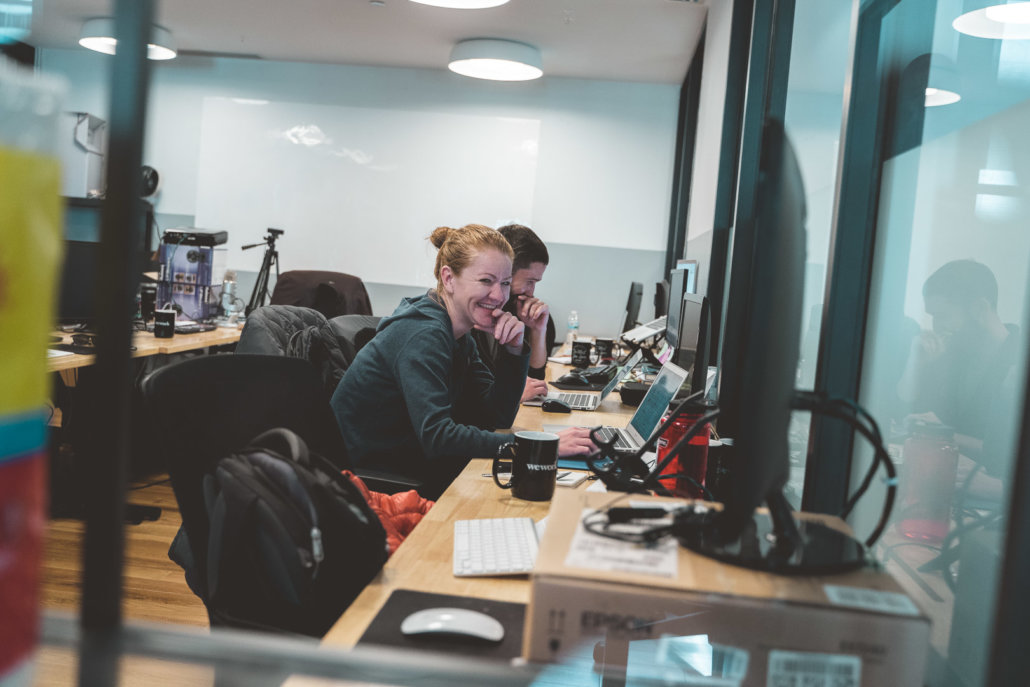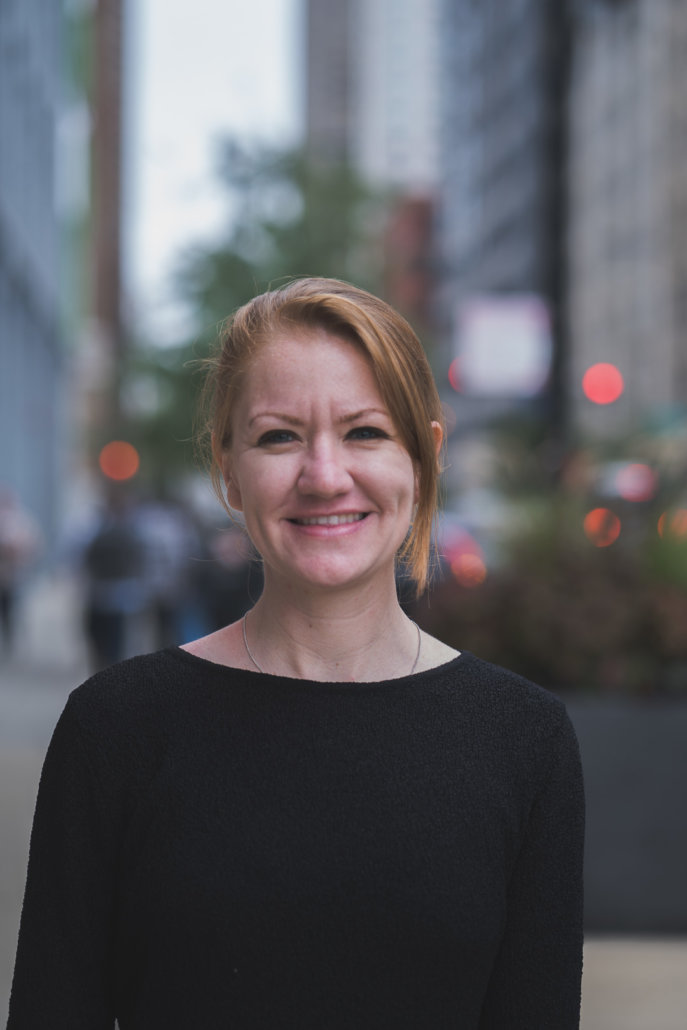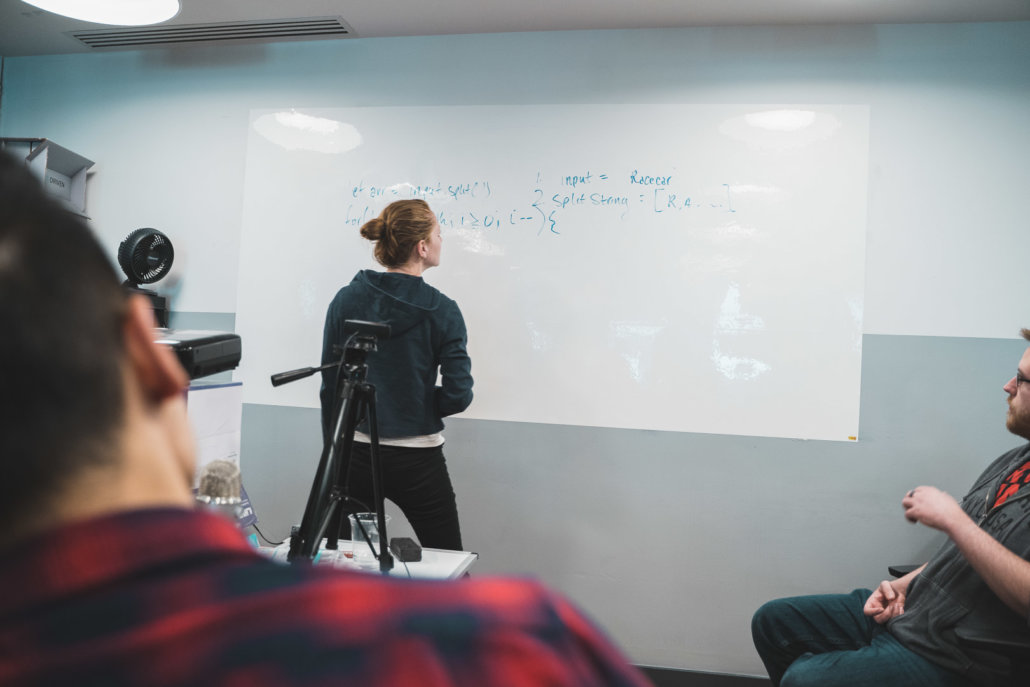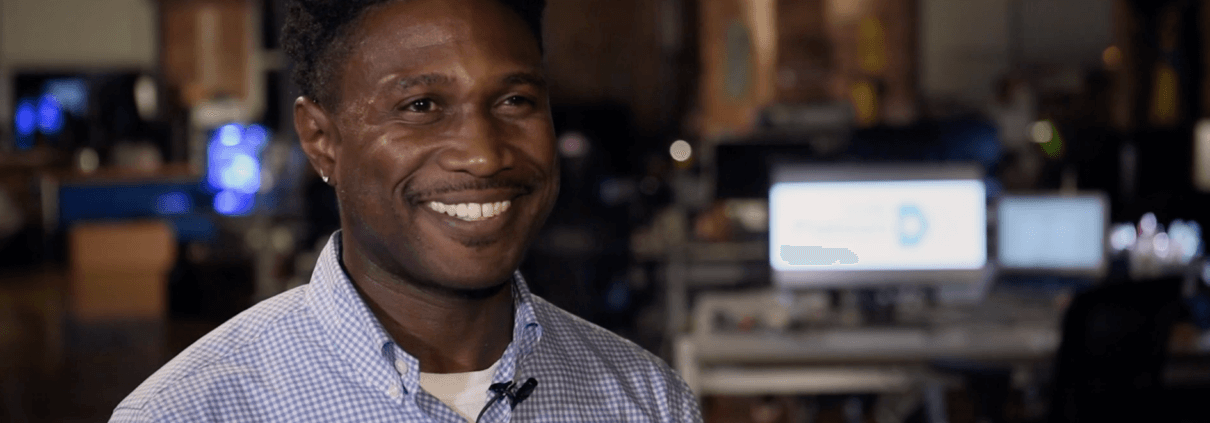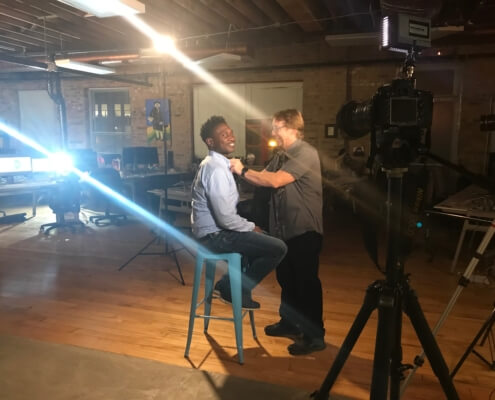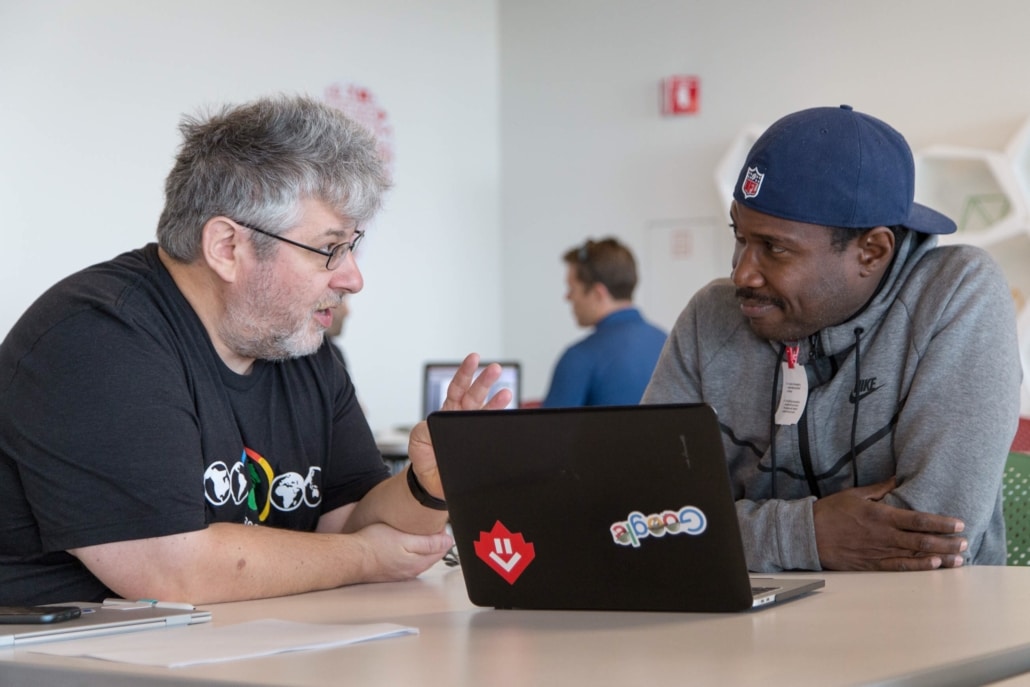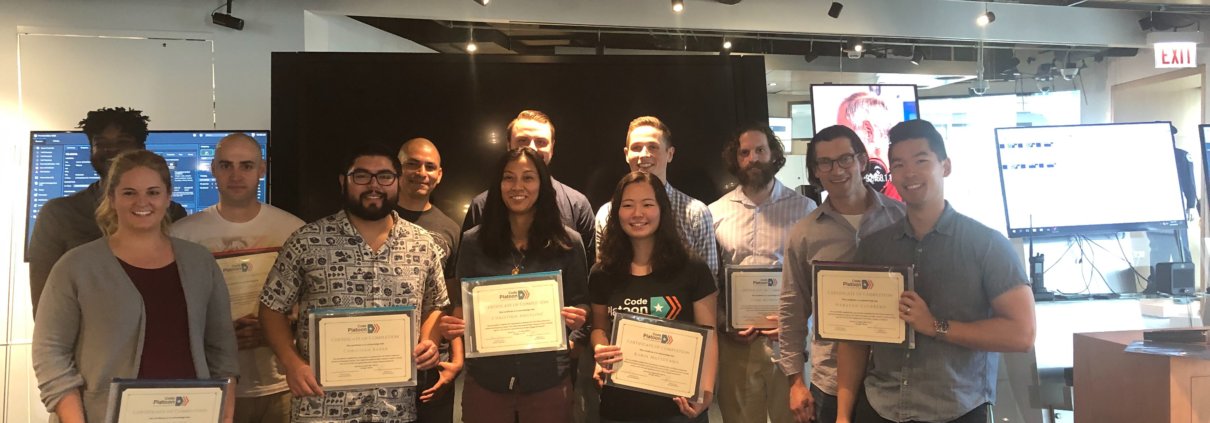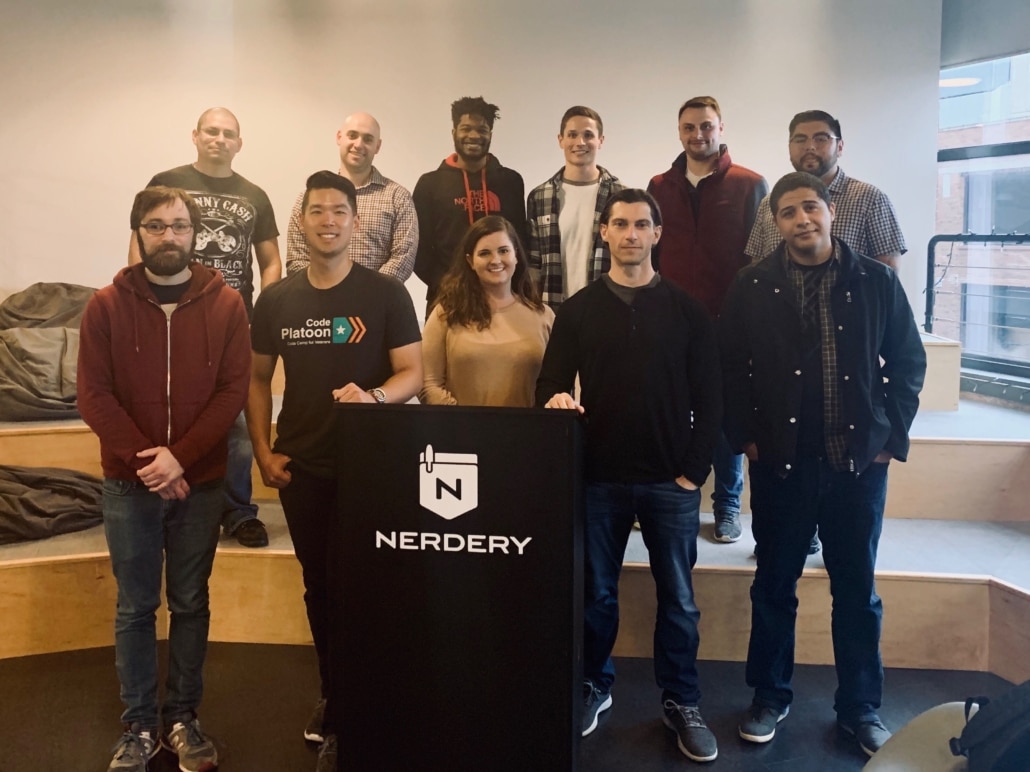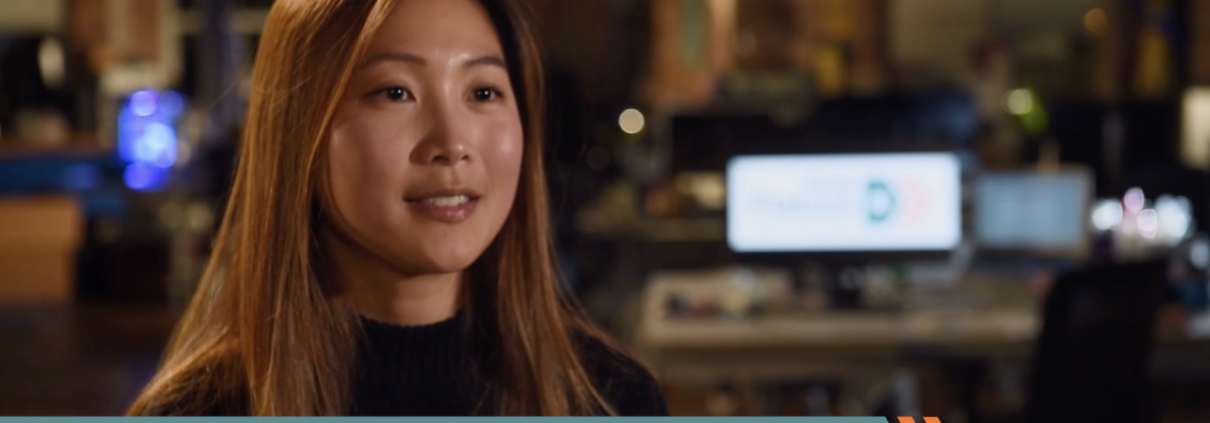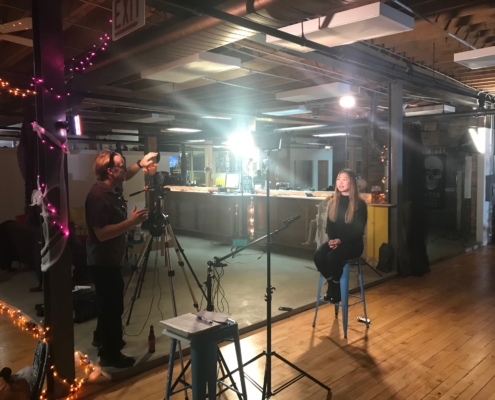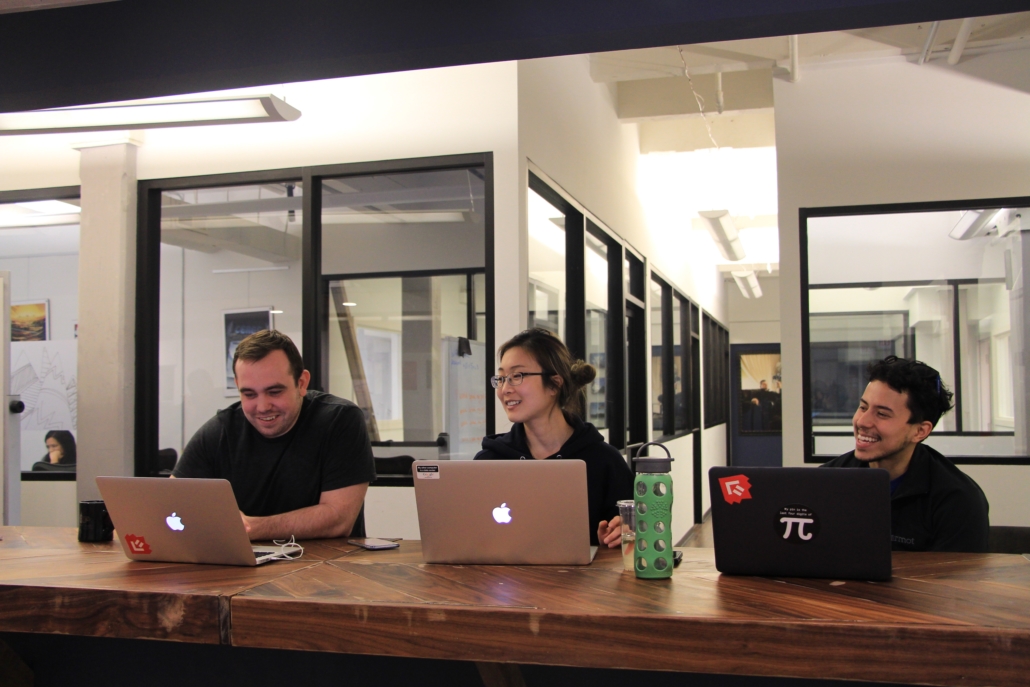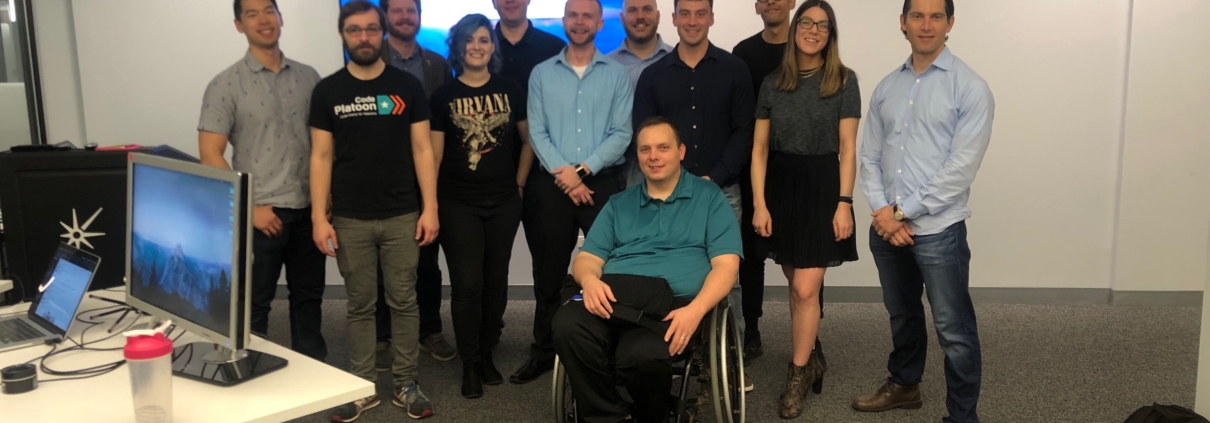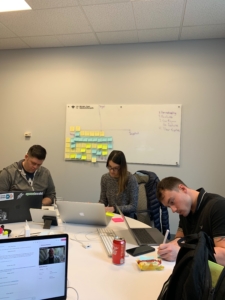McCormick Foundation awards 2019 grant to Code Platoon
Chicago, Illinois – August 22, 2019 – Code Platoon, a nonprofit working to transform Chicagoland veterans and military spouses into professional software developers through an immersive, educational boot camp and mentorship program, today announced it has received a grant for $50,000 USD from the Robert R. McCormick Foundation.
Through this grant, Code Platoon will use these mission critical funds to thoughtfully and meaningfully grow their program to include more students and more support services. The McCormick Foundation awards grants each year to organizations, such as Code Platoon, which support and advance veterans in education, employment, and entrepreneurship.
“Veterans and military spouses step forward to serve our country, and they deserve our help. The impact of this generous grant from the McCormick Foundation will help us create more opportunities for our students to learn and grow as software developers,” said Rodrigo Levy, founder and executive director of Code Platoon.
“Transitioning service members and their spouses are in search of a career not just a job. Although coding isn’t for everybody this program provides all the supports in addition to the immersive training to set veterans and spouses up for success and a lucrative career. We’re proud to help support Code Platoon as they continue to grow their organization and serve more veterans and spouses,” said Megan Everett, Director of the Veterans Program at the McCormick Foundation.
About Code Platoon
Based in Chicago, Illinois, Code Platoon provides software coding training to help local veterans and military spouses find meaningful careers as professional software developers. While some veterans and military spouses do have four year degrees, the only requirements of enrollment are a deep desire to become a professional software developer, a positive work ethic, and a tremendous amount of tenacity. Each student is eligible to receive a scholarship that covers about 80% of their tuition making this career path affordable and attainable. Code Platoon also offers extra scholarships to women veterans who join the boot camp as they are historically underrepresented in technology based careers. Students can also use their GI Bill® benefits to complete our program. The program consists of 8-12 students per class who spend 60-80 hours a week together for 15 weeks. Students are taught the Python and Ruby on Rails technology stacks, which are increasingly popular in the software development field. Instruction is a carefully curated mix of lectures, advanced coding training, and team projects, frequently culminating in a local paid internship.
ABOUT THE ROBERT R. MCCORMICK FOUNDATION
The Robert R. McCormick Foundation’s mission is working with communities in Chicagoland and across Illinois to develop educated, informed, and engaged citizens. Through philanthropic grantmaking and Cantigny Park, the Foundation works to make life better in Chicagoland. The McCormick Foundation, among the nation’s largest foundations with more than $1.5 billion in assets, was established in 1955 upon the death of Col. Robert R. McCormick, the longtime editor and publisher of the Chicago Tribune. Find out more at www.mccormickfoundation.org.
ABOUT THE ROBERT R. MCCORMICK FOUNDATION VETERANS PROGRAM
The Robert R. McCormick Foundation Veterans Program serves Illinois veterans and military families by investing in high-quality and coordinated services in the areas of education, employment, health and wellness. Find out more at www.mccormickfoundation.org/veterans




